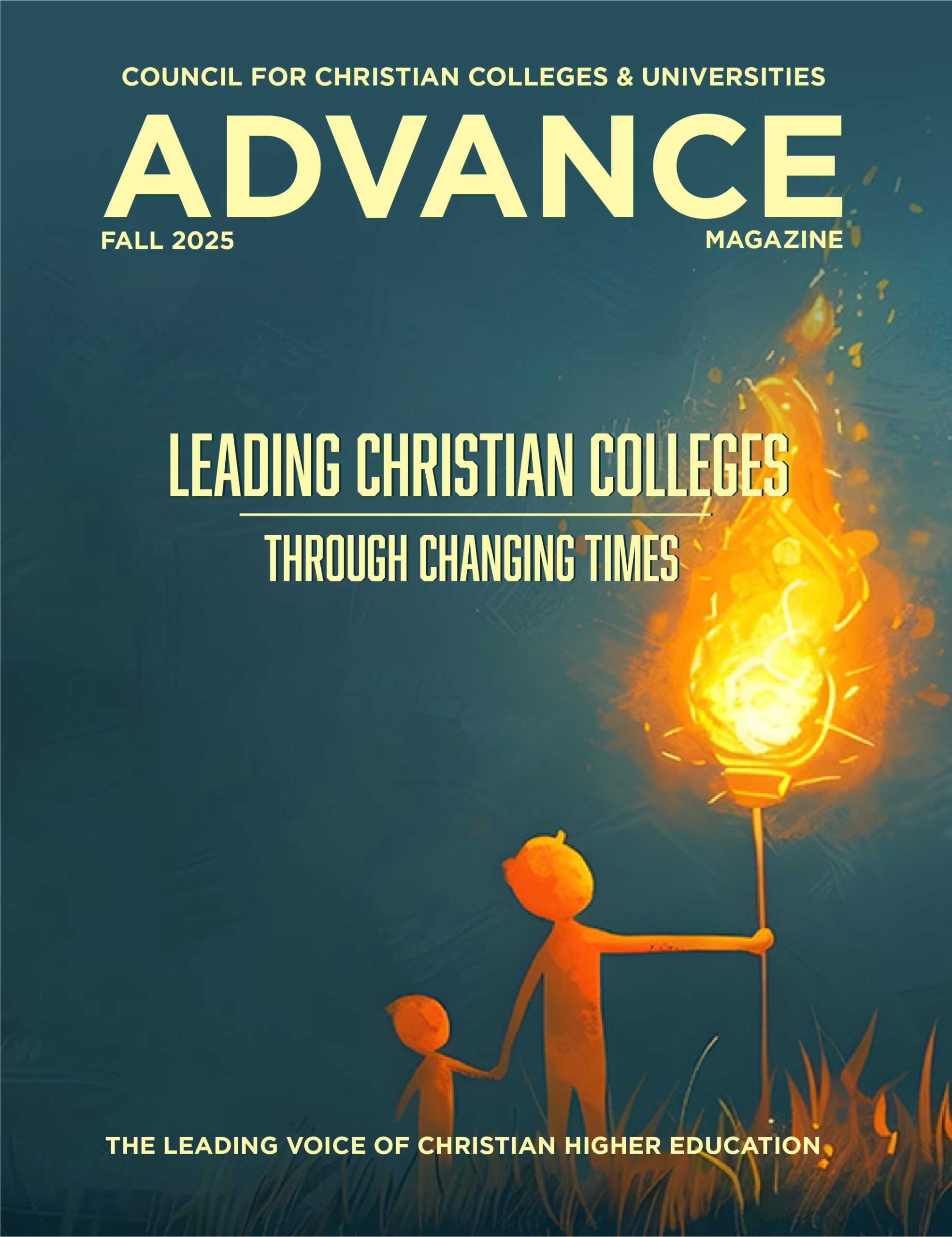Magazine
It was an inspiring funeral service in Grand Rapids, Michigan, for a local boy who became an international philanthropist and entrepreneur. George W. Bush was there. Four governors were there. Many other dignitaries and guests were there to honor a person who had made a worldwide impact. But most importantly, the Gospel was preached: “We are sinners saved by grace because of the sacrifice of Jesus Christ for us.” Rich DeVos, founder of Amway, was a real life example of a contemporary person who strove to lead a noble life. For him, a life worth living entailed philanthropy, freedom, faith, and family.
How does a noble life get formed? Author and speaker Fareed Zacharia linked a noble life to a liberal arts education in a recent commencement speech. “You will learn to write, speak, move through life, be a good citizen, be a better human. … The goal is to create a noble life.” Our institutions do this well, and indeed, it is a worthy endeavor. David Brooks, speaking to the CCCU presidents in 2016, observed this about our endeavors: “You [Christian colleges] have … a way of talking about and educating the human person in a way that integrates faith, emotion, and intellect. You have a recipe to nurture human beings who have a devoted heart, a courageous mind, and a purposeful soul. Almost no other set of institutions in American society has that, and everyone else wants it.”
As you begin this fall with another class of first year students, it is such a privilege to stand for an education that includes delving into the word of God along with the latest textbook and research. This kind of education includes conversations in your English classes where you ask deep questions not only about what authors were thinking when they wrote their essays but also about what those essays reveal about the God of the universe. In your biology classes, you teach the newest advances in DNA research while asking, “What does this reveal about God?” In your residence halls, while you unpack the realities of living together in the midst of difference, you ask, “What does this teach us about God?”
Although we do these things imperfectly, we hope that each student who graduates has had an opportunity to think about what Brooks calls the “eulogy values,” not just the “resume values.” We, without apology, talk about a life that is marked with the fruits of the spirit: love, joy, peace, patience, kindness, goodness, faithfulness, gentleness, and self-control. A life marked by the fruit of the Spirit is, in fact, a noble life. Well-educated people should be leaders in society, role models for young people to aspire to. They should live lives that are others-centered, not self-centered; generous, not stingy; open-hearted, not cynical.
Each one of our students will encounter open doors as well as obstacles, and it is our job to teach them to discern what God is asking them to do as circumstances present themselves. Recently, in a Washington Post op-ed, Ronald J. Daniels, president of Johns Hopkins University, wrote, “When students, and graduates, inevitably face moments of ethical decision making, of sorting fact from fiction on social media, and of reconciling individual aspirations with obligations to their communities, they would be aided by the habits of discernment and deliberation that have distinguished the humanistic tradition for centuries. Perhaps best of all for the country is the vital role played by humanistic inquiry in the development of better, more informed, more capable citizens.” President Daniels here affirms that a liberal arts education has the potential of instilling the ability to discern – wisdom. As Christians, we know the Psalms and Proverbs point us to the ultimate source of wisdom: a loving and just God. “The fear of the Lord is the beginning of knowledge” (Proverbs 1:7). Christian colleges and universities unapologetically point students to a deeper relationship with the God of the universe in order to gain wisdom and live a noble life out of gratitude.
Christian higher education for what purpose? The same thing that motivated Rich DeVos (a Christian college graduate). In his own words: “[I] believe that man was created in the image of God and was given talents and responsibilities. As image bearers, mankind was instructed to use their talents to make this world a better place. At the heart of it, we believe that man was created, and in him is the Living Spirit. He is not a just a lump of clay put together for a few years until we bury him. But he has a greater depth and responsibility. That’s why we care for each other – why we stand together and give thanks for the things we enjoy.” The CCCU often says it this way: “Faith and intellect for the common good.”
As we, all 183 institutions in the CCCU, continue in 2018 and beyond sharing the value of our mission-driven institutions with the media, the courts, the legislature, the accreditors, the departments in our executive branch of government, the leaders of our cities and towns, our partners, and our adversaries, we will remain bold and unbent in defending, preserving, and protecting Christian higher education, knowing the beauty of our calling: to shape the next generation of influencers to live noble lives anchored in Jesus Christ for the good of others.



